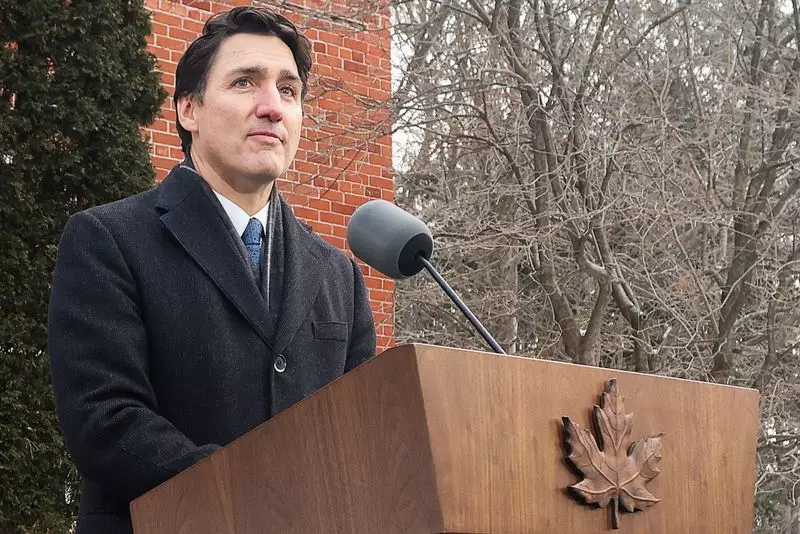The unsettling prospect of significant U.S. tariffs looms over Canada’s economic landscape, raising alarms among policymakers and business leaders alike. Prime Minister Justin Trudeau is at the helm of a critical phase, one that not only involves potential retaliatory measures but also demands unity among Canadian provinces to fend off the economic repercussions. As discussions intensify, Canada must balance its defenses against external pressures while maintaining its long-standing relationship with the United States.
The proposed 25% tariffs on Canadian imports, as promised by U.S. President-elect Donald Trump, are viewed by economists as a potential catalyst for a recession in Canada. With an overwhelming 75% of Canada’s exports directed toward the United States, these tariffs threaten to disrupt the interconnected economic fabric of North America. Trudeau’s upcoming cabinet retreat seeks to underscore the necessity of defending Canadian interests, making it clear that a collective stance from the federal government and the provinces is paramount to mitigate the risks posed by these tariffs.
The Need for Unity Among Provinces
The dynamics between provincial leaders and the federal government reveal fissures that could hinder an effective response. Ontario Premier Doug Ford’s vocal criticism of Ottawa’s approach highlights the tension: many provinces feel that their needs are not adequately represented in the federal strategy. Ford’s warning that Ontario could suffer enormous job losses—up to 500,000 positions—further accentuates the urgency for a united front. As the premiers convene with Trudeau, the emphasis will likely be on achieving consensus, but the varying priorities of provinces will challenge that unity.
Countermeasures are on the table, with Foreign Minister Melanie Joly indicating that energy exports to the U.S. might be restricted. However, this provocative stance could spark severe backlash, especially from provinces like Alberta, where Premier Danielle Smith has issued stern warnings against any curtailment of crude oil exports. The potential for a national unity crisis looms, as regional interests clash with national strategies aimed at countering American tariffs.
As the cabinet meeting coincides with Trump’s inauguration, the importance of a robust response system cannot be overstated. Canada’s unveiling of a C$1.3 billion border-security strategy aimed at improving surveillance and intelligence is a direct response to growing U.S. concerns regarding border security. This proactive approach also serves to reinforce the message of Canadian resilience, signaling a readiness to engage diplomatically while safeguarding its economic interests.
Canada stands at a crossroads, where strategic decisions made in the looming shadow of U.S. tariffs could shape its economic future. The intricacies of managing interprovincial relations and ensuring a unified response are complexities that the Trudeau administration must navigate with deftness and foresight. As discussions unfold, the manner in which Canada addresses these challenges will not only determine its short-term economic stability but also solidify its long-term position within the North American trade landscape. Uniting the provinces and clearly articulating a strong defense will be critical as Canada looks to secure its interests amid external threats.

